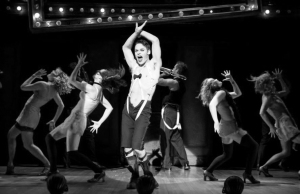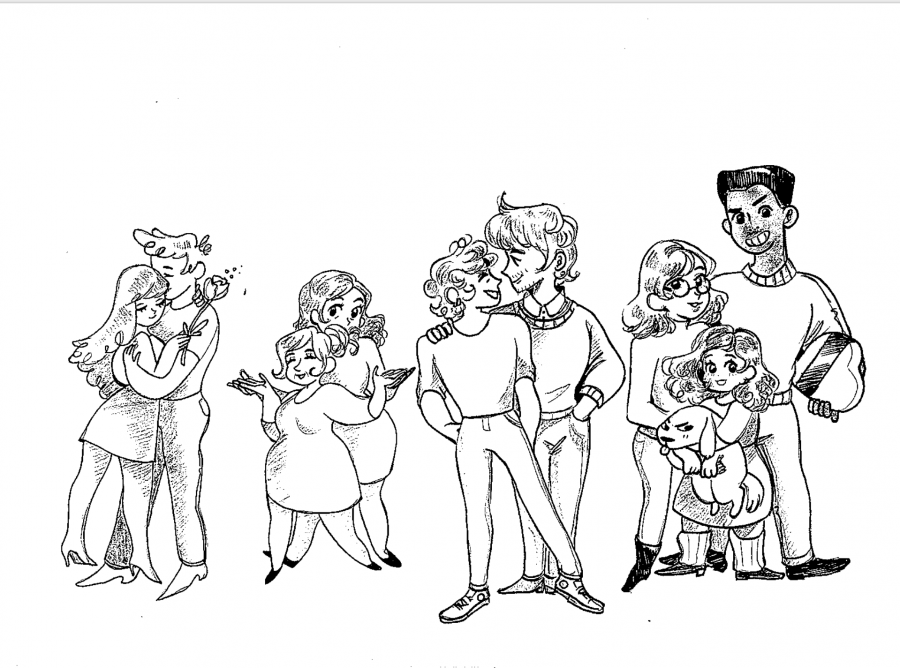By Lisa Nault
Staff Writer
Theater in its essence captures humanity. Actors analyze characters and learn exactly how humans convey their thoughts/feelings (gestures, expressions, words) for the audience to suspend their disbelief. Musicals go one step further and use songs and dances to express a tone to the story. Recently, the Boston Opera House performed the musical Cabaret, which tells the story of the sexy but sketchy Kit Kat Klub in Berlin and its people. The shows tone is a mixture of surreal entertainment and heartbreak.

Cabaret mainly focuses on three characters: Clifford “Cliff” Bradshaw, Sally Bowles, and Fräulein Schneider. Cliff is an American author who is in Berlin to write his next novel. He is enthralled by the nightlife, the people, and the experience of living somewhere where the people feel free to express themselves. It is ironic because the show reveals that the people cannot reveal who they are without fear of persecution.
Cliff meets a girl at the Kit Kat Klub named Sally and they end up living together. Sally is an English woman who loves to perform but has been through some hardships in her life. The show often references that she is still a small child in many ways.
Fräulein Schneider owns the building where Cliff, and eventually Sally, stays. She is an elderly woman who lives a simple life and is just trying to survive. As the show progresses she falls in love with a man named Herr Schultz. Her story line is extremely sweet until a certain point and then the audience must watch as she struggles to make a painful choice.
While Cliff, Sally, and Fräulein Schneider are technically the main characters of the story the true star is the Emcee. Cabaret begins with the introduction of Emcee, the narrator of the tale who physically weaves in and out of the story. In terms of fascinating characters who grace the stage, Emcee is number one. They interact with the audience and tell naughty jokes. Even when Emcee is not the focus of a scene, the audience cannot help but watch them because their presence is captivating.
They tell random stories that do not seem to connect to the plot or will sing a song that feels out of place. It is all purposefully planned though. The audience gets lulled into a sense of euphoric bewilderment that turns to shock when suddenly they are reminded that the show takes place in Germany—Nazi Germany. Emcee then begins to tell a new story. The subjects of their songs have lost their subtlety and the viewers cannot escape the impact that growing Nazi power has on the characters.
Cabaret is beautiful in the most intricate ways. For starters, the characters in the show are also part of the orchestra. The ladies of the Kit Kat Klub play cellos, trumpets, violins, etc. when they are not in a scene. The rest of the orchestra is also on the stage, raised up above the characters performing below. It creates an intimate connection between the audience and the music.
It is crucial to note that while Cabaret is a show that will stay with you it may be too much for some. The subject of the story is naturally depressing because it is set in Nazi Germany. However, the plot begins with everyone just living their lives and wanting to stay out of politics while the Nazi party grows. It is difficult to think that people were not consumed by this threat to the point where their daily lives stopped. In retrospect it is scary to watch the complacency of the characters in the looming shadow of the Third Reich with the knowledge of what will happen to them.
The ending is powerful, abrupt, and will make you reflect for the rest of the evening. Cabaret is worth watching because it has much to say but it is understandable if some choose not to see it.
Cabaret makes audiences smile and feel empty inside, which is a difficult task to master. People may leave the theater experiencing feelings they were not prepared to feel but they will never regret witnessing this musical.




















